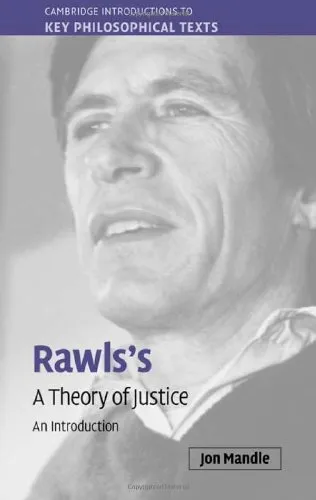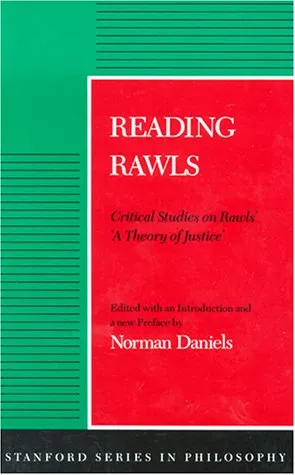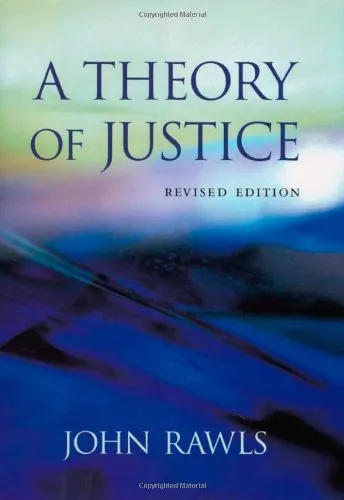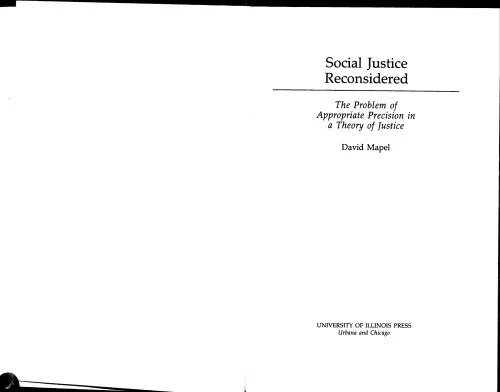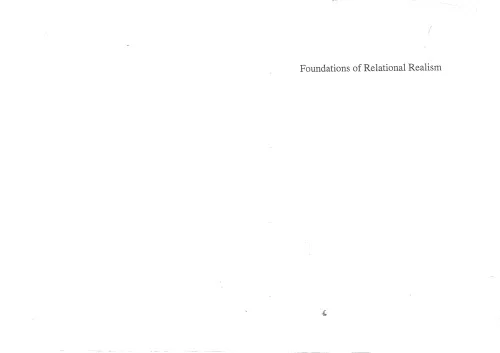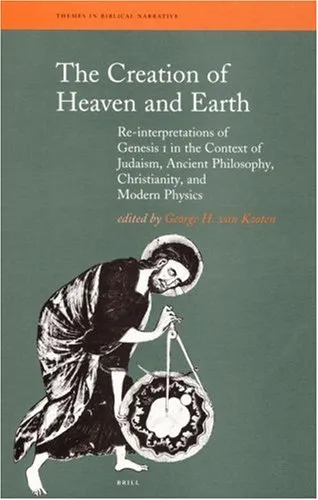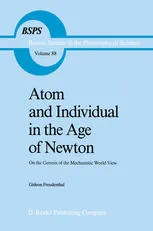Rawls's 'A Theory of Justice': An Introduction
4.5
Reviews from our users

You Can Ask your questions from this book's AI after Login
Each download or ask from book AI costs 2 points. To earn more free points, please visit the Points Guide Page and complete some valuable actions.Related Refrences:
Introduction to Rawls's 'A Theory of Justice': An Introduction
In my book, "Rawls's 'A Theory of Justice': An Introduction," I provide a comprehensive guide to understanding one of the most influential works in political philosophy. The book explores the ideas pioneered by John Rawls in his seminal work "A Theory of Justice," which addresses the principles of justice that should inform the basic structure of a well-ordered society. By delineating complex concepts in an accessible manner, this introduction endeavors to make Rawls's profound ideas understandable to both students and scholars alike.
Detailed Summary of the Book
The book offers a clear and detailed summary of the key elements of John Rawls’s "A Theory of Justice." It begins by discussing the central place that the concept of justice holds in our moral and political lives. The narrative then dives into Rawls's proposals of 'justice as fairness,' elaborating on the original position and the veil of ignorance—a thought experiment designed to secure agreement on principles of justice that are impartial and universally acceptable.
Further, the text unveils Rawls's two principles of justice: the liberty principle, which insists on the primacy of basic liberties, and the difference principle, which allows social and economic inequalities only if they benefit the least advantaged members of society. Also explored are the notions of the basic structure as primary subject of justice and the priority of justice as a virtue of social institutions.
Key Takeaways
- An understanding of the fundamental principles of Rawls's theory of justice.
- An insight into the original position and the veil of ignorance.
- The significance of balancing liberty and equality in a just society.
- Comprehension of how Rawls’s ideas contrast with utilitarian approaches to justice.
Famous Quotes from the Book
"Justice is the first virtue of social institutions, as truth is of systems of thought."
"The principles of justice are chosen behind a veil of ignorance."
Why This Book Matters
"Rawls's 'A Theory of Justice': An Introduction" holds significant importance for its role in elucidating and making accessible the complex theoretical insights of John Rawls. Understanding Rawls’s work is crucial for anyone seeking to engage in contemporary philosophical discussions about justice, fairness, and equality. Rawls set the framework for modern social justice discourse, encouraging societies to critically assess their structures and policies to promote fairness and equality. This introduction not only provides clarity to Rawls's rich and groundbreaking concepts but also sparks deeper reflection on the moral foundations of political and social systems.
Free Direct Download
You Can Download this book after Login
Accessing books through legal platforms and public libraries not only supports the rights of authors and publishers but also contributes to the sustainability of reading culture. Before downloading, please take a moment to consider these options.
Find this book on other platforms:
WorldCat helps you find books in libraries worldwide.
See ratings, reviews, and discussions on Goodreads.
Find and buy rare or used books on AbeBooks.
1499
بازدید4.5
امتیاز0
نظر98%
رضایتReviews:
4.5
Based on 0 users review
Questions & Answers
Ask questions about this book or help others by answering
No questions yet. Be the first to ask!
